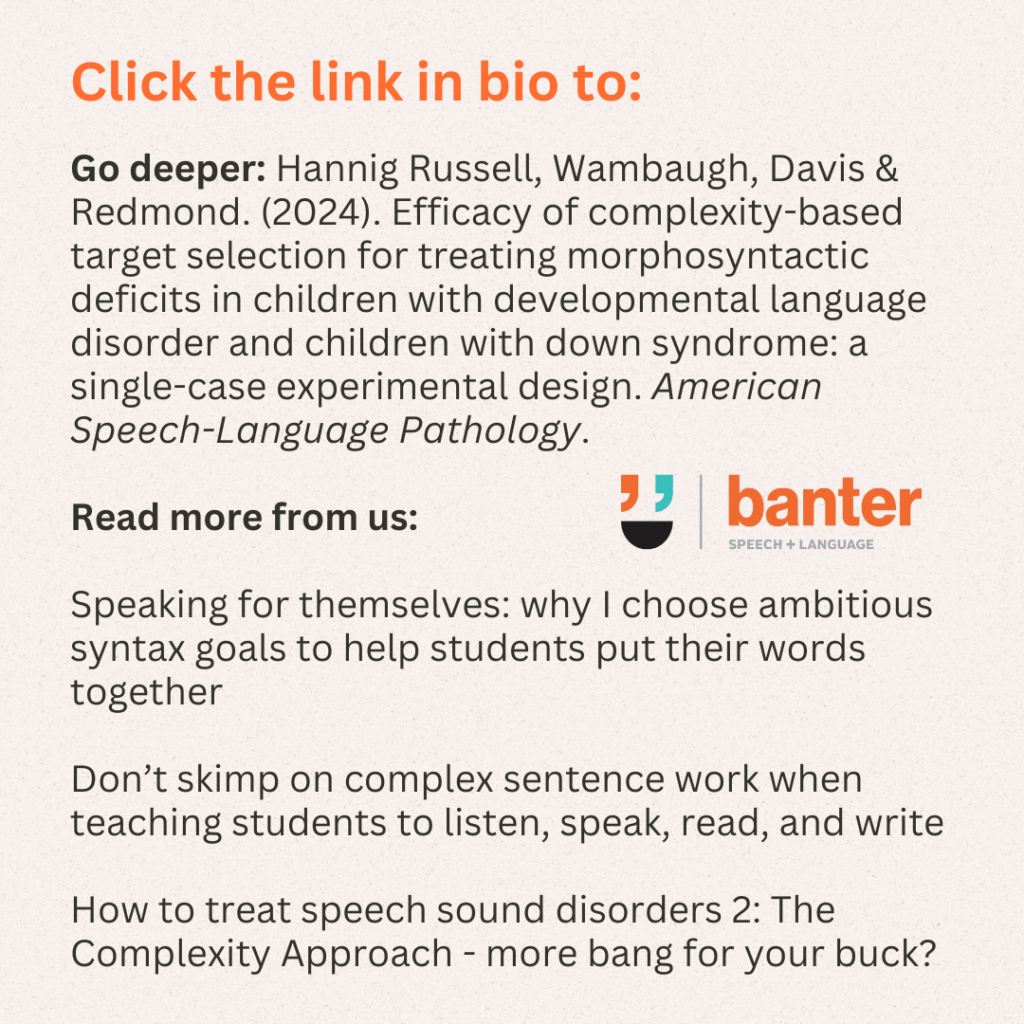To better help young school-age children with DLD, we should focus on complex language structures
The big picture
Traditional language therapy targets language structures, like sentences, in a developmental sequence, starting with simple structures the child isn’t using. But targeting complex structures may be more efficient and functional for school-age children with developmental language disorder (DLD).
Why it matters
Focusing on complex language structures may help students with DLD improve targeted and/or simpler, related language structure skills more efficiently. We’ve seen similar outcomes with speech therapy for children with unclear speech (see below).
Practical example
Using simple picture stories, focus on complex auxiliary “is/are” questions, like this:
- Adult: I wonder if the mice are cleaning the kitchen? Ask the puppet!
- Child: Are the mice cleaning the kitchen?
- Adult: Everyone needs to clean. I wonder if the dog is cleaning? Ask if the dog is cleaning.
- Child: Is the dog cleaning?
- This work may help some school-age children with DLD learn both the complex target and/or simpler, related targets at the same time, e.g. The mice are cleaning the kitchen. (Subject-Verb-Object), The dog is sad. (Subject-Verb-Complement).
Go deeper:
Hannig Russell, K. M., Wambaugh, J. L., Davis, J. L., & Redmond, S. M. (2024). Efficacy of complexity-based target selection for treating morphosyntactic deficits in children with developmental language disorder and children with down syndrome: a single-case experimental design. American Speech-Language Pathology. Advance online publication. https://doi.org/10.1044/2024_AJSLP-24-00171
More from us:
Don’t skimp on complex sentence work when teaching students to listen, speak, read, and write
How to treat speech sound disorders 2: The Complexity Approach – more bang for your buck?

Hi there, I’m David Kinnane.
Principal Speech Pathologist, Banter Speech & Language
Our talented team of certified practising speech pathologists provide unhurried, personalised and evidence-based speech pathology care to children and adults in the Inner West of Sydney and beyond, both in our clinic and via telehealth.
















